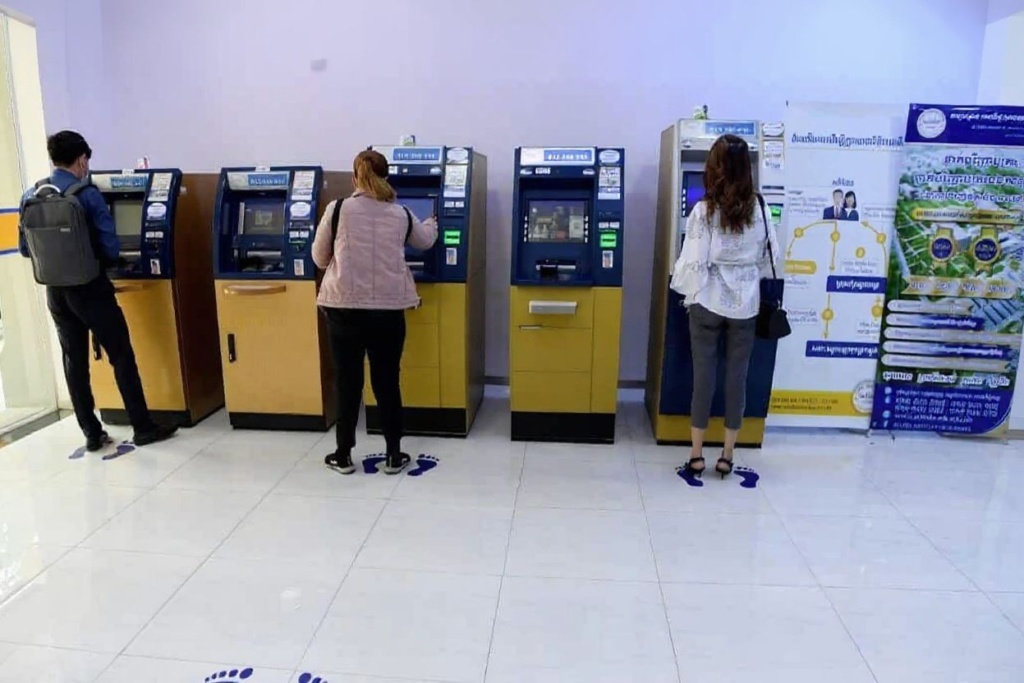
Knowing to street clear of the worst jobs in the world that are dying and recognising which career will lead you to success is not always a clear-cut choice.
One-third of Americans revealed that they had no plan after graduating from college or high school, according to a poll.
Another statistic from a leading careers exploration website revealed that 44% of undergraduates struggle to define the industry they want to work in once they graduate.
When they do look for jobs, many graduates seek opportunities they believe will lead to success. Pursuing this involves seeking positions that offer career growth and advancement opportunities.
Candidates may prioritise roles that provide opportunities for skill development, training programmes, or mentorship.
In today’s fast-paced world, the job market is constantly evolving —influenced by technological advancements, changing consumer preferences, and economic shifts. As a result, certain professions that were once in high demand are now facing an uncertain future.
Recognising these worst jobs in the world and understanding their decline can encourage job seekers to explore alternative career paths that offer greater stability and growth potential.
The rise of automation and artificial intelligence has brought about significant changes across industries too.
Tasks that were usually performed by humans can now be efficiently executed by machines, leading to a decreased demand for specific professions. The digital revolution has drastically changed how we work, communicate, and access information.
Although automation has gradually replaced manufacturing jobs, it is no longer limited to blue-collar workers.
The advancement of artificial intelligence means that jobs across various sectors — including skilled labour and professions that require extensive education — can now be at risk of becoming obsolete.
How fast is technology advancing in 2023?
Here are a few statistics for you to look out:
- The number of tech startups around the world is close to 1.35 million.
- As of 2022, the global internet penetration rate is a whopping 63%.
- The amount of data produced by the world is expected to exceed 463 exabytes by 2025.
- The number of internet users is around 5 billion and is increasing exponentially.
- By the end of 2030, the number of smart devices that collect, analyze, and facilitate data sharing should hit 50 billion.
- The number of devices connected to the internet will cross 500 billion by 2030.
Traditional forms of media, such as print newspapers and magazines, will struggle to stay relevant in an era dominated by digital media platforms and online news sources.
For instance, the development of autonomous vehicles and ride-sharing services has raised questions about the future of job roles related to transportation, such as taxi drivers and delivery personnel.
Gone are the days when humans were the masters of their fields. The rise of technology has taken over jobs once deemed exclusively for humans. From manufacturing to customer service, data analysis to creative endeavours, the digital revolution has set its sights on replacing countless job titles.
While technology has helped to boost efficiency and productivity, it has also left many facing an uncertain future, wondering if they will be Ctrl+Alt+Deleted from their professional lives.
What’s more, the tech takeover doesn’t stop at the office doors. It follows us home like a persistent pop-up ad.
Smart devices have become our personal assistants — answering our queries and helping us complete many tasks. Social media platforms have become platforms where we showcase our carefully curated lives, filtering reality with pixel-perfect precision.
The following jobs may still be recruiting, but many of these professions may disappear sooner than people think.
10 worst jobs in the world you should avoid
 Librarians are on the list of worst jobs in the world.
Librarians are on the list of worst jobs in the world.
1. Librarians
Though on the list of easier careers, did you know you need a minimum of a bachelor’s degree to qualify as a librarian?
While librarians have traditionally been knowledgeable and helpful in locating resources and sifting through books, they have become a thing of the past these days.
Schools in the US are gradually reducing the number of school librarian positions available.
2. Air traffic controller
Being an air traffic controller is an extremely stressful job with zero room for error.
Although automation has enhanced safety measures, it has also resulted in fewer employment opportunities.
While there will always likely be air traffic controller jobs, there is a decrease in demand for them, especially due to the Next Generation Air Transportation System, which will transform air traffic control systems from radar to satellite through 2025.
This is good news for airports as they will be able to handle more traffic. However, it will reduce the need for new hires.
 Referees make the list of one of the worst jobs in the world to pursue right now as video technology takes over the job.
Referees make the list of one of the worst jobs in the world to pursue right now as video technology takes over the job.
3. Referees
Another job on the list of worst jobs in the world is refereeing.
The decline in the need for referees is mainly due to video technology. It has proven to be more accurate than human judgment, and sports organisations like FIFA have already incorporated it to regulate games.
Instant replays and goal-line technology have demonstrated greater reliability than human referees in assessing plays on the field. Unfortunately, referees also risk encountering abuse from disgruntled fans and players, regardless of whether their decisions are correct.
Given that technology provides accuracy, referee positions may soon become obsolete.
According to Business Insider, 70% of individuals who become referees leave the position within three years.
4. Translators
Translators are crucial in various professional settings, such as hospitals, schools, and international businesses.
However, the rise of technology has made translation services readily available, often replacing human translators with programmes capable of translating multiple languages.
The development of machine translation and other language-processing technologies has made it easier and faster to translate text.
Automated translation tools, like Google Translate, have become widely available and can handle basic translation tasks.
Many also lean towards machine translation, which can be more cost-effective and time-efficient. It can handle large volumes of text quickly and at a lower cost than hiring human translators.
 As other forms of media are on the rise, reporting is one of the worst jobs in the world to pursue right now.
As other forms of media are on the rise, reporting is one of the worst jobs in the world to pursue right now.
5. Reporters
The future looks uncertain for radio and television announcers.
According to the US Bureau of Labour Statistics (BLS), nearly one in ten reporters are expected to lose their jobs in the next decade. The news industry as a whole has experienced significant layoffs.
The popularity of streaming music services has led to a shift in audience, reducing the demand for local reporters.
BLS projects a 9% decline in reporters and broadcast news analysts, resulting in approximately 4,500 jobs disappearing.
Major news organisations like CNN and BuzzFeed have also made significant cuts in the past year.
As the number of layoffs increases in the news industry, it’s becoming clear that reporters may have fewer job opportunities.
 Bank teller is one pf the worst jobs in the world to pursue right now thanks to ATMs and online banking services.
Bank teller is one pf the worst jobs in the world to pursue right now thanks to ATMs and online banking services.
6. Bank tellers
In today’s digital age, finding a bank that doesn’t offer an app or online access to accounts is nearly impossible.
With online banking features providing 24/7 account access, the demand for bank tellers has significantly decreased.
The number of bank tellers available in branches has significantly decreased compared to a few decades ago. With the rise of telephone banking, online banking, and ATMs, the need for tellers and other representatives physically present in banks has decreased.
As technology takes over tasks such as opening bank accounts or processing loans, it is predicted that in the next few years, we will see several bank branches close, ultimately making the bank teller position obsolete.
7. Bookkeepers
With technology constantly improving, bookkeeping jobs will likely be eliminated within the next decade and replaced by automated technology.
BLS estimates a 5% decrease in bookkeeping and accounting jobs by 2031. They state, “technological change and automation are expected to reduce demand for these workers.”
Accounting software now allows individuals to easily manage their finances without the need to hire a bookkeeper. Some software can even download bank account information and complete basic tax forms.
These platforms may drive many small business owners to independently manage their finances instead of hiring bookkeepers.
8. Customer service representatives
Automation has also impacted the customer service industry.
Many companies in customer service use automation for their websites to address specific customer inquiries and reduce costs.
This includes implementing chatbots and online self-help resources. These technologies can handle basic customer inquiries and tasks, reducing the need for human representatives.
The job outlook for customer service representatives looks bleak, with BLS projecting a 4% decline in positions through 2031.
9. Computer programmers
While a career in information technology (IT) can be lucrative, the demand for computer programmers is diminishing as automation makes programming faster and more efficient.
Automation tools, such as code generators and low-code platforms, have made it easier to create basic applications without writing extensive lines of code.
BLS estimates a 10% decline in computer programming jobs by 2031.
 Travel agents are facing a decline due to online booking websites.
Travel agents are facing a decline due to online booking websites.
10. Travel agents
Online travel booking sites have transformed how people plan their trips, decreasing the need for travel agents.
BLS projects a 12% decrease in travel agents over the next decade.
With easy access to information and the ability to compare prices, many individuals now independently research and book their flights, accommodations, and tours.
While travel agents can still be beneficial for planning more complex vacations or unknown destinations, virtual assistants now assist travellers with tasks such as airfare and accommodation inquiries.










